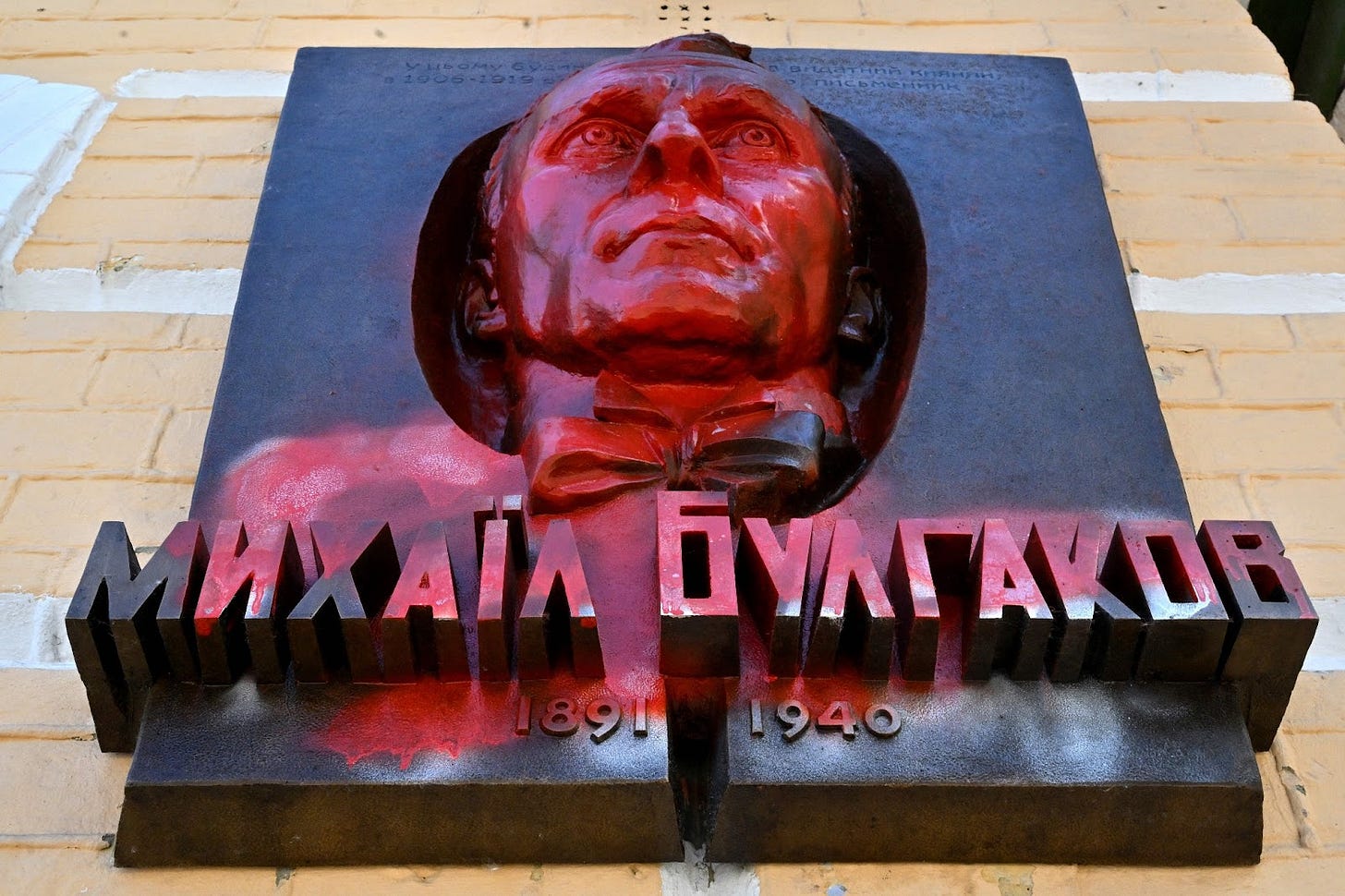My favorite Kyiv-born writer was canceled
Alessandra admires Kyiv-born Russian author Bulgakov and grew to love Kyiv through his works, but Myroslava sees him as an imperialist against Ukrainian independence.
Editor’s Note: Despite the difficult conditions in Ukraine and the daily power outages, we try our best to bring you unique information about Ukraine.
Upgrade to a paid subscription to make sure you don't miss any news from Ukraine.
Last year, on Andriivskiy Yzviz, one Kyiv’s most historic streets, a plaque of a man’s face was vandalized.

The man was one of my favorite authors, Mikhail Bulgakov, a Russian writer, born in Kyiv in 1891, while the city was still part of the Russian empire. Bulgakov lived to see Kyiv become part of the Soviet Union and bore witness to the Ukrainian independence movements in the early 20th century.
I first fell in love with Bulgakov’s writing while studying Russian literature at university. Bulgakov’s writing had everything I loved in literature: it is bizarre, moving, unpretentious and funny all at once, and it was devoid of all the things I hated about Russian literature: the somber imperial self importance that weighs down Tolstoy and Dostoevsky.
However, since the full-scale war Bulgakov’s work has become a subject of intense controversy and those who considered his writing to be ‘free of ideology’ are now few and far between.
Before the war Bulgakov’s work was taught in schools in Ukraine; his writing was sold in bookshops and his museum operated freely, but since the full-scale war, as Ukrainians try to purge their culture of imperialist hangovers, Bulgakov’s disparaging depictions and writings about Ukrainian nationalism and the Ukrainian language have come under fire.
Popular Ukrainian writers like Oksana Zabushko have called Bulgakov’s writing ‘propaganda literature’ and the Ukraine’s National Writers Union called for the Bulgakov museum to close down.
The existential threat that Russia’s full-scale invasion poses to Ukraine has forced Ukrainians to think more deeply about their history and their culture; few expected Russia’s full-scale invasion. The controversy surrounding Bulgakov represents a wider problem: how will a deeper understanding of the past reshape Ukrainian culture.
Keep reading with a 7-day free trial
Subscribe to The Counteroffensive with Tim Mak to keep reading this post and get 7 days of free access to the full post archives.



